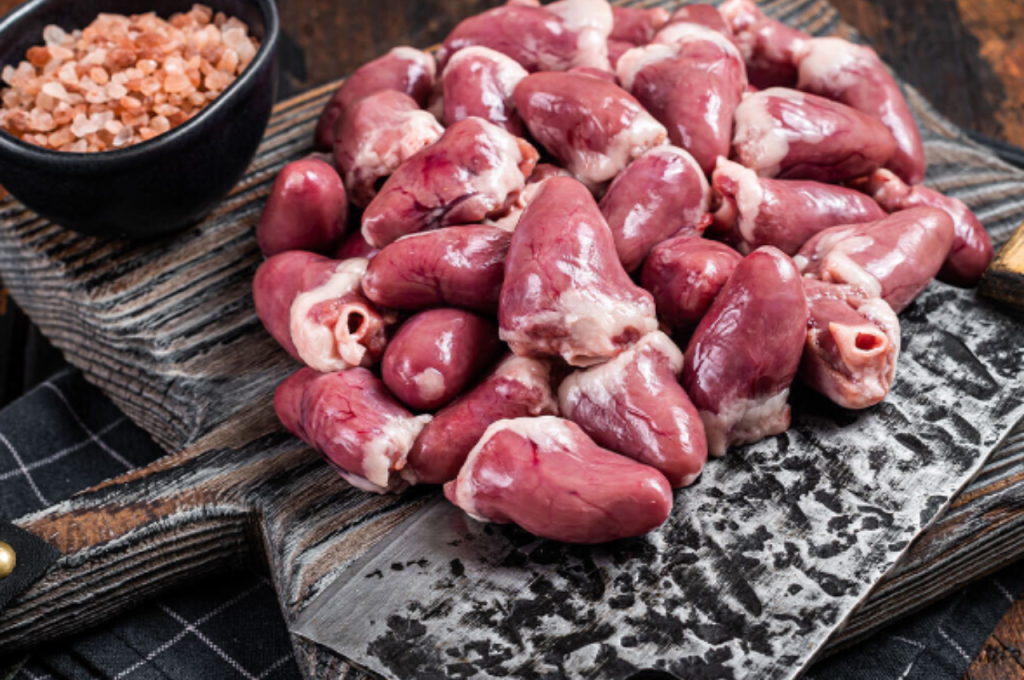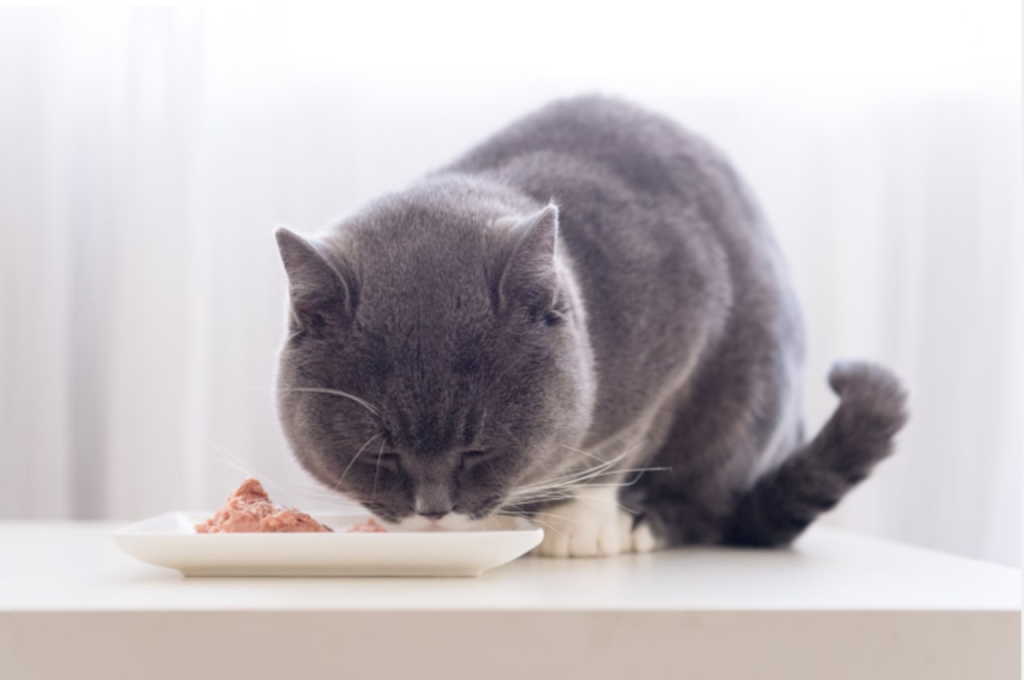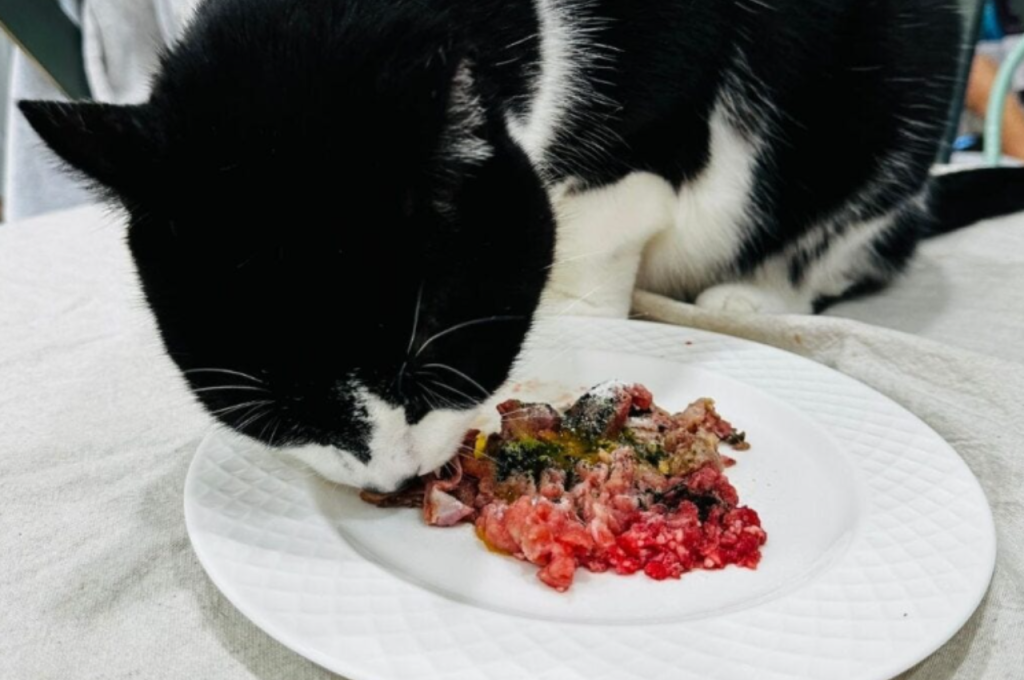The heart can be a good source of nutrition for cats, providing essential nutrients and proteins for their well-being. Cats can benefit from the consumption of heart as part of a balanced diet.
Cats require a specific diet that meets their nutritional needs, and incorporating heart into their meals can contribute to their overall health. The heart is rich in vitamins and minerals, including iron, zinc, and B vitamins, which are necessary for optimal feline health.
Furthermore, the proteins found in the heart are easily digestible for cats, making it a beneficial addition to their diet. However, it is important to ensure that the heart is properly prepared and cooked to avoid any potential health risks. Consulting with a veterinarian for specific dietary recommendations is always recommended.
Nutritional Value of Heart for Cats
The nutritional value of hearts for cats is significant, providing a range of essential nutrients that support feline health. It is not only delicious for your furry friend but also packed with valuable components that contribute to their overall well-being.

Rich in Taurine and Amino Acids
The heart is a valuable source of taurine and essential amino acids that are crucial for maintaining your cat’s heart health and overall bodily functions. Amino acids are the building blocks of proteins, which are vital for muscle growth and repair, ensuring your cat stays strong and healthy.
High in Protein and Essential Nutrients
Being high in protein, heart is an ideal nutrient-dense food for cats, aiding in muscle development and energy levels. It contains essential nutrients such as iron, zinc, and B vitamins, which are necessary for your cat’s growth, immune system, and overall health.
Health Benefits of Feeding Heart to Cats
Feeding heart to cats can provide numerous health benefits to your furry friend. Hearts are not only delicious but also rich in essential nutrients that can support their overall well-being. In this section, we will explore the health benefits of feeding heart to cats, including how it improves heart function and supports muscle growth.
Improves Heart Function
Heart meat is packed with essential nutrients that can help improve your cat’s heart function. It contains a high concentration of taurine, an amino acid that plays a crucial role in maintaining a healthy heart. The lack of taurine in a cat’s diet can lead to serious heart problems. By offering heart as a part of their diet, you can ensure that your cat receives an adequate amount of taurine, promoting a healthy heart and reducing the risk of heart-related diseases.
Supports Muscle Growth
In addition to improving heart function, feeding your heart to your cat can also support muscle growth. Hearts are an excellent source of protein, vitamins, and minerals that are vital for the development and maintenance of strong muscles. The high protein content in heart meat helps to promote lean muscle mass in cats, allowing them to stay agile and active. It can also help to strengthen their immune system and support a healthy metabolism.
- Taurine: Essential for heart health
- Protein: Supports muscle growth and development
- Vitamins and Minerals: Promotes overall well-being
- Immune System: Strengthens immunity
- Metabolism: Supports a healthy metabolism
Feeding a heart to your cat offers a range of health benefits, including improved heart function and support for muscle growth. By including this nutrient-rich organ meat in their diet, you can give your cat the natural nourishment they need for a healthy and happy life.
Different Ways to Feed Heart to Cats
Feeding heart to your beloved feline friend can be a nutritious and delicious addition to their diet. There are different ways to incorporate a heart into your cat’s meals, each with its benefits. Let’s explore some of the different ways to feed hearts to cats.
Raw vs. Cooked Heart
When it comes to feeding heart to your cat, you may wonder whether raw or cooked is better. Both raw and cooked hearts can be suitable for your cat. The raw heart can retain more of its natural nutrients, enzymes, and flavor, while the cooked heart can be easier for some cats to digest and may reduce the risk of bacteria or parasites. It’s important to consult your veterinarian to determine the best option for your cat based on their individual needs and health considerations.
Incorporating Heart into Homemade Meals vs. Commercial Diets
If you’re considering incorporating heart into your cat’s meals, you can do so through homemade meals or using commercial diets that include heart as an ingredient. Homemade meals give you control over the quality and variety of ingredients, allowing you to cater to your cat’s specific dietary requirements.

On the other hand, commercial diets provide convenience and ensure balanced nutrition, as they are formulated to meet feline dietary needs. Balance and variety are key, so it’s essential to ensure that the heart is included as part of a balanced diet, whether it’s in homemade or commercial meals.
Considerations Before Adding Heart to A Cat’s Diet
Cats can greatly benefit from the addition of heart to their diet. However, there are some important considerations to keep in mind before adding this organ meat to their meals. Consulting a veterinarian, ensuring proper portion size, and understanding the potential risks are essential steps towards incorporating heart into a cat’s diet.
Consulting A Veterinarian
Before introducing heart into your cat’s diet, it is crucial to consult with a veterinarian. Your vet can provide tailored advice based on your cat’s specific health needs and dietary requirements. They can also guide you on the appropriate amount of heart to incorporate into their meals, ensuring it is done safely and in a manner that promotes optimal health.
Ensuring Proper Portion Size
When adding a heart to a cat’s diet, it is vital to ensure the proper portion size. Overfeeding any type of food can lead to digestive issues and nutritional imbalances. By carefully measuring and monitoring the amount of heart included in your cat’s meals, you can maintain a balanced and healthy diet for your pet.
Potential Risks of Feeding Heart to Cats
While the heart can be a beneficial addition to a cat’s diet, cat owners need to be aware of the potential risks associated with feeding heart to their feline companions. It’s crucial to understand that even though the heart is a nutrient-rich organ meat, certain factors must be considered to ensure the health and well-being of your cat.
Allergic Reactions
Just like humans, cats can develop allergies to certain foods, and the heart is no exception. While it is relatively rare, cats can have allergic reactions to heart meat. These allergic reactions can manifest in various ways, including itching, skin irritation, digestive problems, or even difficulty breathing. If you notice any unusual symptoms after introducing heart into your cat’s diet, it’s important to consult with your veterinarian to determine if your cat is experiencing an allergic reaction.
Overconsumption Risks
While the heart is a beneficial source of essential nutrients for cats, overfeeding can lead to potential health risks. Cats are obligate carnivores, meaning their bodies are designed to obtain the majority of their nutritional needs from animal-based protein sources.
However, too much heart meat in a cat’s diet can upset the delicate balance of their nutritional requirements. Excessive consumption of the heart can result in an imbalance of certain nutrients, leading to weight gain, digestive problems, or nutrient deficiencies.
To avoid overconsumption risks, it’s essential to provide a well-rounded and balanced diet for your cat. Incorporating heart as part of a varied diet, alongside other protein sources, such as lean meats and high-quality cat food, can help ensure your cat receives a balanced nutritional intake.
Tips for Introducing Heart into A Cat’s Diet
For a cat’s diet, incorporating heart meat provides essential nutrients like taurine and protein for optimal health. As a natural protein source, heart meat supports your cat’s overall well-being and is easily digestible, making it a valuable addition to their diet.
Gradual Introduction
When integrating heart into your cat’s diet, it’s crucial to proceed with caution, beginning with a slow and gradual approach. By introducing this new food item gradually, you allow your feline companion’s digestive system to adjust and adapt effectively.
Mixing With Familiar Foods
Mix the heart with familiar foods to help your cat transition. If you mix heart with wet food, it can help your cat adapt to the new taste and texture.

Consider rotating between heart and familiar foods before making it a permanent diet addition.
Frequently Asked Questions of Is Heart Good for Cats
Here are frequently asked questions about Is heart good for cats:
Is the heart safe for cats to eat?
Yes, heart is safe for cats to eat in moderation. It is a natural and nutritious source of protein and taurine, which are essential for a cat’s diet. However, it should be cooked and served plain without any seasoning or additives.
Can cats eat raw heart meat?
Yes, cats can eat raw heart meat if it’s fresh and properly handled. Raw heart meat provides beneficial nutrients and enzymes, but it’s essential to ensure the meat is sourced from a safe and reputable source to minimize the risk of contamination.
Should I include a heart in my cats?
Including the heart in your cat’s diet can be beneficial as it’s rich in essential nutrients like taurine and protein. However, it should be fed in moderation as part of a balanced diet to avoid any potential digestive issues or nutrient imbalances.
Conclusion
Incorporating a heart into a cat’s diet has several potential benefits. It is a nutrient-rich organ meat that can contribute to overall health and well-being. However, it is essential to consult with a veterinarian before making any dietary changes for your feline friend.
Remember to introduce new foods gradually and monitor your cat’s response for any adverse reactions. With the right approach, the heart can be a valuable addition to your cat’s nutrition plan.
